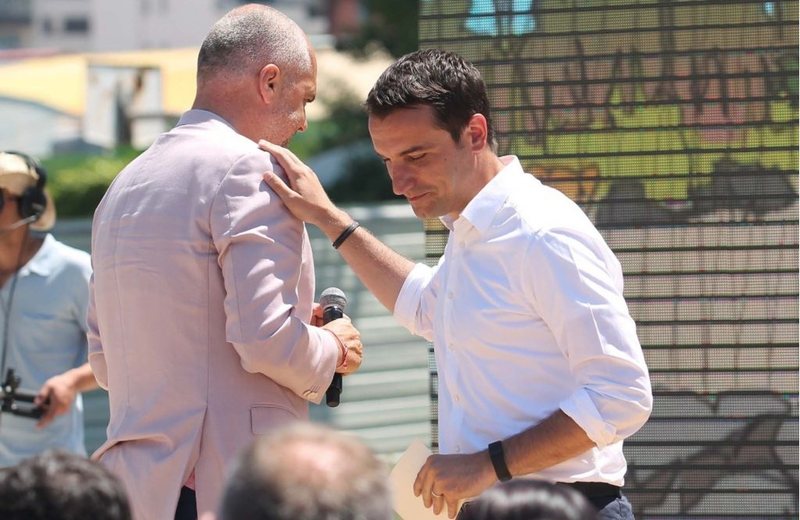PM Rama denies speculation on Veliaj meeting amid opposition sponsored conspiracy theories

Albanian Prime Minister Edi Rama has strongly refuted claims that he planned to visit detained Tirana Mayor Erion Veliaj in prison, dismissing the reports as “fake news” propagated by political opponents and the media. His remarks come amid a surge of conspiracy theories surrounding Veliaj’s arrest, many of which are being actively spread by the opposition.
Why is this Important: Veliaj’s arrest has turned into a highly charged political event, fueling speculation and controversy. The opposition has seized on the moment to put forward various theories, seemingly in an attempt to distract from the government’s claims that SPAK is selectively targeting Socialist officials. Some of the most widely circulated narratives include the claim that Rama orchestrated Veliaj’s arrest to eliminate a potential rival, or conversely, that he is working behind the scenes to protect him out of fear of what Veliaj might reveal. Another more outlandish theory suggests that SPAK arrested Veliaj to please former U.S. President Donald Trump, given Veliaj’s past links to George Soros through his activism.
Context: During a parliamentary session on Thursday, opposition leader Sali Berisha was particularly vocal in promoting speculation about Rama’s alleged involvement in Veliaj’s arrest. Berisha claimed that Rama was planning to visit Veliaj in detention to pressure him and warned that the Prime Minister would be held accountable for anything that might happen to Veliaj, the judge, or the prosecutors handling the case.
In response, Rama took to X (formerly Twitter) to categorically reject the claim, calling it an outright fabrication. He accused opposition figures and media outlets of deliberately spreading misinformation to manipulate public perception.
Rama’s response: Rama’s reaction was sharp and unequivocal. He described the reports as part of a “political and media swamp” committed to disinformation, while reaffirming that he has no intention of interfering in Veliaj’s legal battle.
“Erion is in pretrial detention, and whether I like how his case was handled or not, I am not like you, nor am I part of your swamp. His legal battle is his and his lawyers’, not mine and not the Socialist Party’s.”
Rama also emphasized that he would not engage in any form of political theater, such as prison visits, or interfere in judicial matters. He reiterated his long-standing position that Albania’s justice system must operate independently, without government control.
“When I say we need a justice system that fights corruption and guarantees democratic standards, I mean what I say. The thought of playing theatrics with visits to prison or meddling in judicial proceedings in any way never crosses my mind.”
What’s next: With tensions running high and multiple narratives competing for public attention, the political landscape in Albania remains deeply polarized. As the case unfolds, the question remains whether these theories will influence public opinion or if the facts will ultimately prevail over political rhetoric. One thing is certain: the controversy surrounding Veliaj’s arrest is far from over.


